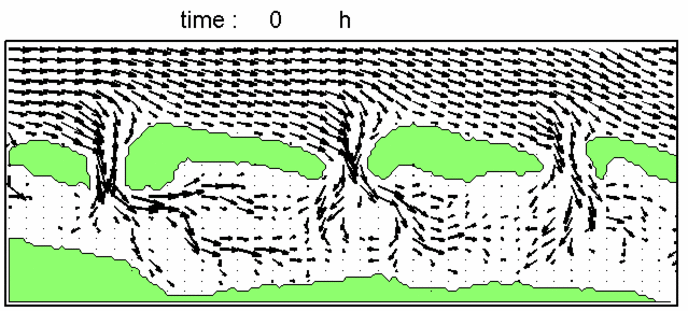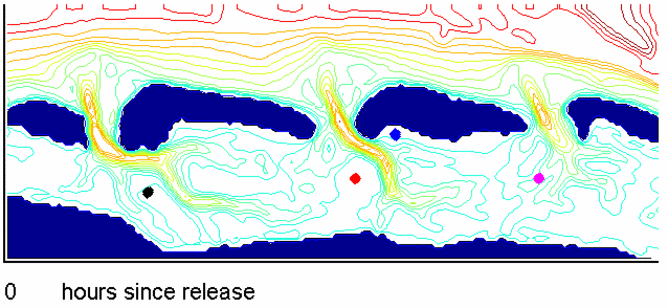Research Group of Tidal Flats (finished)
Subproject 4: Hydrodynamics and suspended sediment budget of a tidal basin of the East Frisian Wadden Sea
Head: Jörg-Olaf Wolff (ICBM) and Burghard W. Flemming (Senckenberg Institute, Wilhelmshaven)
Funding: DFG
Description:
The East Frisian Wadden Sea, characterised by a deficit of externally supplied sediments, responds to rising sea level by a landward shift, with simultaneous upwelling of the system. This process is driven by the interaction of sea level rise, tidal current, swell and wind-induced water level fluctuations. However, man has placed an insurmountable obstacle in the way of this shifting process through dyke construction, which has led to the continuous elimination of fine-grained sediments near the dyke. Since there is a lack of alternative depositional areas for fine-grained sediments in the Wadden Sea, a long-term net export of sediments (and substances bound to them) transported in suspended load is postulated. The primary objective of this project is therefore to quantify and prognostically model the suspended sediment budget of a typical tidal basin. This requires the development of a high-resolution and ultimately sea state coupled, three-dimensional flow model. Both the flow model and the suspended sediment budget are to be validated using detailed in situ measurements, with a particular focus on recording extreme events. The deposition and resuspension behaviour of fine-grained sediments in the tidal basin will also be recorded.
Flow field in the Wadden Sea during a tidal cycle

This animation shows how particles (e.g. pieces of wood, table tennis balls, ...) could be distributed in the Wadden Sea under the influence of the tides (based on numerical simulations). The particles are started at 4 positions and then tracked for one week.


![[Translate to English:]](/f/5/_processed_/3/2/csm_ICBM-Logo-transparent-_91fe1c6774.png)